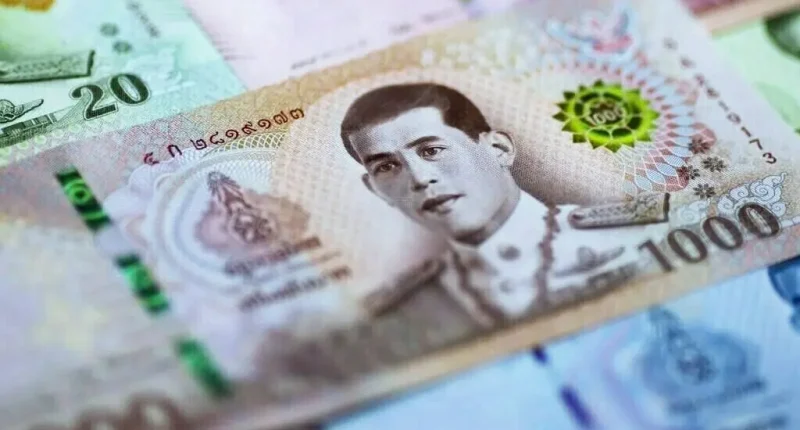The recent appreciation of Thailand’s currency, the baht, has created a notable impact on the country’s fiscal stability. As the 2024 fiscal year drew to a close in September, revenue collection fell short of government expectations by approximately 4-5 billion baht, primarily due to fluctuations in the currency exchange rate. This article examines the implications of this shortfall and highlights key fiscal projections and measures the Thai government is taking in response.
Understanding the Baht Appreciation and Revenue Shortfall
Impact of Baht Appreciation on VAT Revenue
The primary reason behind the revenue shortfall is the recent strengthening of the baht, which occurred in the last two weeks of the fiscal year. According to Finance Permanent Secretary Lavaron Sangsnit, this currency appreciation affected the value-added tax (VAT) revenue generated from imports, particularly oil imports. When the baht gains value, the cost of imports declines in baht terms, which in turn reduces the VAT collected from these imports.
Exchange Rate Volatility as a Factor in Revenue Collection
Lavaron explained that, under stable exchange rate conditions, the Thai government would likely have met its revenue collection targets. This fiscal challenge is entirely attributed to the baht’s volatility rather than underlying economic issues, highlighting how susceptible government revenue is to global currency fluctuations.
Fiscal Year 2024 Revenue and Spending Overview
Despite the revenue shortfall, Lavaron assured that government spending will remain unaffected as budget expenditure typically does not reach the full allocation. Here’s a look at the planned expenditures and the budget outlook for the current fiscal year.
Projected Revenue and Spending for 2024
For the 2024 fiscal year, the Thai government anticipated a budget deficit with projected expenditures of 3.48 trillion baht (US$103 billion) against a projected revenue of 2.78 trillion baht (US$82.3 billion). Moving into the next fiscal year, spending is expected to rise to 3.75 trillion baht (US$111 billion), while anticipated revenue will increase slightly to 2.88 trillion baht (US$85.3 billion).
Major Revenue Contributors
The largest contributor to Thailand’s revenue is expected to be the Revenue Department, with an estimated collection of 2.37 trillion baht (US$70.2 billion). Following closely is the Excise Department, projected to collect 609 billion baht (US$18 billion). Despite the shortfall in revenue collection, these departments continue to play a critical role in supporting the country’s fiscal goals.
Student Loan Fund (SLF) Initiatives Boost Repayment Rates
In addition to discussing revenue concerns, Lavaron also addressed recent improvements in student loan repayments. The Student Loan Fund (SLF) has implemented significant changes to encourage borrowers to repay their loans effectively.
Changes to SLF Repayment Terms
Recent amendments to the SLF law have prioritized repaying the principal amount over outstanding interest, allowing borrowers to manage their debt more feasibly. This restructuring process enables borrowers to temporarily defer interest payments, which has resulted in a 10% increase in repayment rates over the previous year.
Extended Repayment Terms to Support Borrowers
Debt restructuring under the SLF allows borrowers an extended repayment period of 15 additional years. This extended timeframe has provided relief to over 200,000 borrowers out of the more than two million eligible accounts. As a result, the SLF aims to reduce defaults and enable more students to manage their financial responsibilities effectively.
Expanding Debt Restructuring Options
Lavaron also noted that the SLF plans to extend its debt restructuring options to state financial institutions, providing even more borrowers with flexible repayment solutions. This initiative aligns with the Thai government’s strategy to support financial stability among young adults and recent graduates.
Conclusion: Managing Fiscal Challenges Amid Currency Fluctuations
As Thailand navigates the fiscal challenges posed by the baht’s appreciation, the government remains focused on maintaining fiscal stability. By adjusting repayment options for student loans and projecting realistic revenue targets, Thai authorities aim to address immediate fiscal issues while maintaining a balanced budget. The currency-driven revenue shortfall underlines the importance of exchange rate stability in revenue collection and highlights the resilience of Thailand’s fiscal strategy moving forward.









